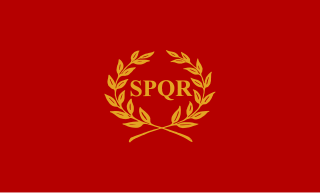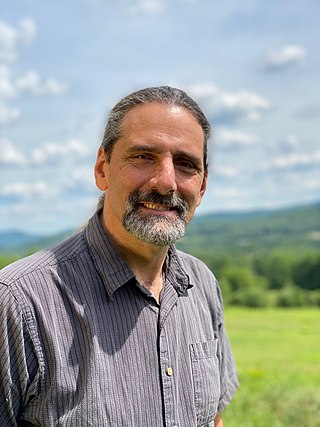
Events organized for, or largely attended by, members of Neopagan spiritual paths: often planned around the Wheel of the Year or coinciding with adjacent phases of the Moon.

Events organized for, or largely attended by, members of Neopagan spiritual paths: often planned around the Wheel of the Year or coinciding with adjacent phases of the Moon.

Paganism is a term first used in the fourth century by early Christians for people in the Roman Empire who practiced polytheism, or ethnic religions other than Judaism. In the time of the Roman Empire, individuals fell into the pagan class either because they were increasingly rural and provincial relative to the Christian population, or because they were not milites Christi. Alternative terms used in Christian texts were hellene, gentile, and heathen. Ritual sacrifice was an integral part of ancient Greco-Roman religion and was regarded as an indication of whether a person was pagan or Christian. Paganism has broadly connoted the "religion of the peasantry".

Zsuzsanna Emese Mokcsay is a Hungarian-American writer, activist, playwright and songwriter living in America who writes about feminist spirituality and Dianic Wicca under the pen name Zsuzsanna Budapest or Z. Budapest. She is the founder of the Susan B. Anthony Coven #1, which was founded in 1971 as the first women-only witches' coven. She founded the female-only style of Dianic Wicca.

Nova Roma is an international Roman reconstructionist, cultural revivalist, and educational nonprofit organization formed in 1998, later incorporated in Maine. Nova Roma is dedicated to promoting "the restoration of classical Roman religion, culture, and virtues" and "shared Roman ideals".

Giuseppe Avati, better known as Pupi Avati, is an Italian film director, producer, and screenwriter. He is known to horror film fans for his two giallo masterpieces, The House with Laughing Windows (1976) and Zeder (1983).
Rock music has been performed and heard in Lithuania since the mid-1960s. At first, repression by the Soviet authorities meant that rock was performed only at illegal gatherings, while music from the West was available on Radio Luxembourg or smuggled records. As pressure eased somewhat, rock musicals began to be released, such as Velnio nuotaka and Ugnies medžioklė su varovais.

Stadio Olimpico, colloquially known as l'Olimpico, is an Italian multi-purpose sports venue located in Rome. Seating over 70,000 spectators, it is the largest sports facility in Rome and the second-largest in Italy, after Milan's San Siro. It formerly had a capacity of over 100,000 people, and was also called Stadio dei Centomila. It is owned by Sport e Salute, a government agency that manages sports venues, and its operator is the Italian National Olympic Committee.

Selena Fox is a Wiccan priestess, interfaith minister, environmentalist, pagan elder, author, and lecturer in the fields of pagan studies, ecopsychology, and comparative religion.
Pagan Spirit Gathering (PSG) is a nature spirituality festival organized by Circle Sanctuary. First held in 1980, it has grown into one of the oldest and largest such events in the United States. The gathering is held Sunday to Sunday during the week near the summer solstice, forming a temporary Pagan town each year.

Mėnuo Juodaragis is an annual Baltic culture, alternative music, folk music and experimental music festival organized in Lithuania. It has been running since 1995 and is visited by 5,000 to 6,000 people each year, making it one of the biggest and oldest festivals in Lithuania.

Maria Carta was a Sardinian folk music singer-songwriter. She also performed in film and theatre. In 1975 she wrote a book of poetry, Canto rituale.
In the 1970s Soviet Lithuania, there were many groups resisting official Soviet ideology. One of the most notable was hippies.
Spirit Haven is a Pagan, 501(c)3 multicultural organization committed to fostering spirituality. The organization provides a haven for community and celebration to support and promote the well-being of its diverse membership.
Circle Sanctuary is a non-profit organization and legally recognized neopagan church based in southwestern Wisconsin. It aims to encourage community celebrations, spiritual healing, research, networking and education.
Modern paganism in the United States is represented by widely different movements and organizations. The largest modern pagan religious movement is Wicca, followed by Neodruidism. Both of these religions or spiritual paths were introduced during the 1950s and 1960s from Great Britain. Germanic Neopaganism and Kemetism appeared in the US in the early 1970s. Hellenic Neopaganism appeared in the 1990s.

Kirk White is an American neopagan author and politician. Prior to serving the Windsor-Addison district in the Vermont House of Representatives, he was founder and president of Cherry Hill Seminary. White's multidisciplinary education includes a master of arts in mental health and addictions counseling, as well as training in acupuncture.

Revivals of ancient Roman polytheism have taken various forms in the modern era. These efforts seek to re-establish the traditional Roman cults and customs, often referred to as cultus deorum Romanorum, religio Romana, the Roman way to the gods, Roman-Italic Religion, or Gentile Roman Religion. Several loosely affiliated organizations have emerged in the contemporary period.

Carlo Vanzina was an Italian film director, producer and screenwriter.
Donald Hudson 'Don' Frew is a figure in American Wicca, the Covenant of the Goddess, national and global interfaith dialogue, and Pagan studies.

Traditions of Italy are sets of traditions, beliefs, values, and customs that belongs within the culture of Italian people. These traditions have influenced life in Italy for centuries, and are still practiced in modern times. Italian traditions are directly connected to Italy's ancestors, which says even more about Italian history.
Mėnuo Juodaragis ... weekend-long neo-pagan festival of folk, metal and electronica held in a different countryside location each year.